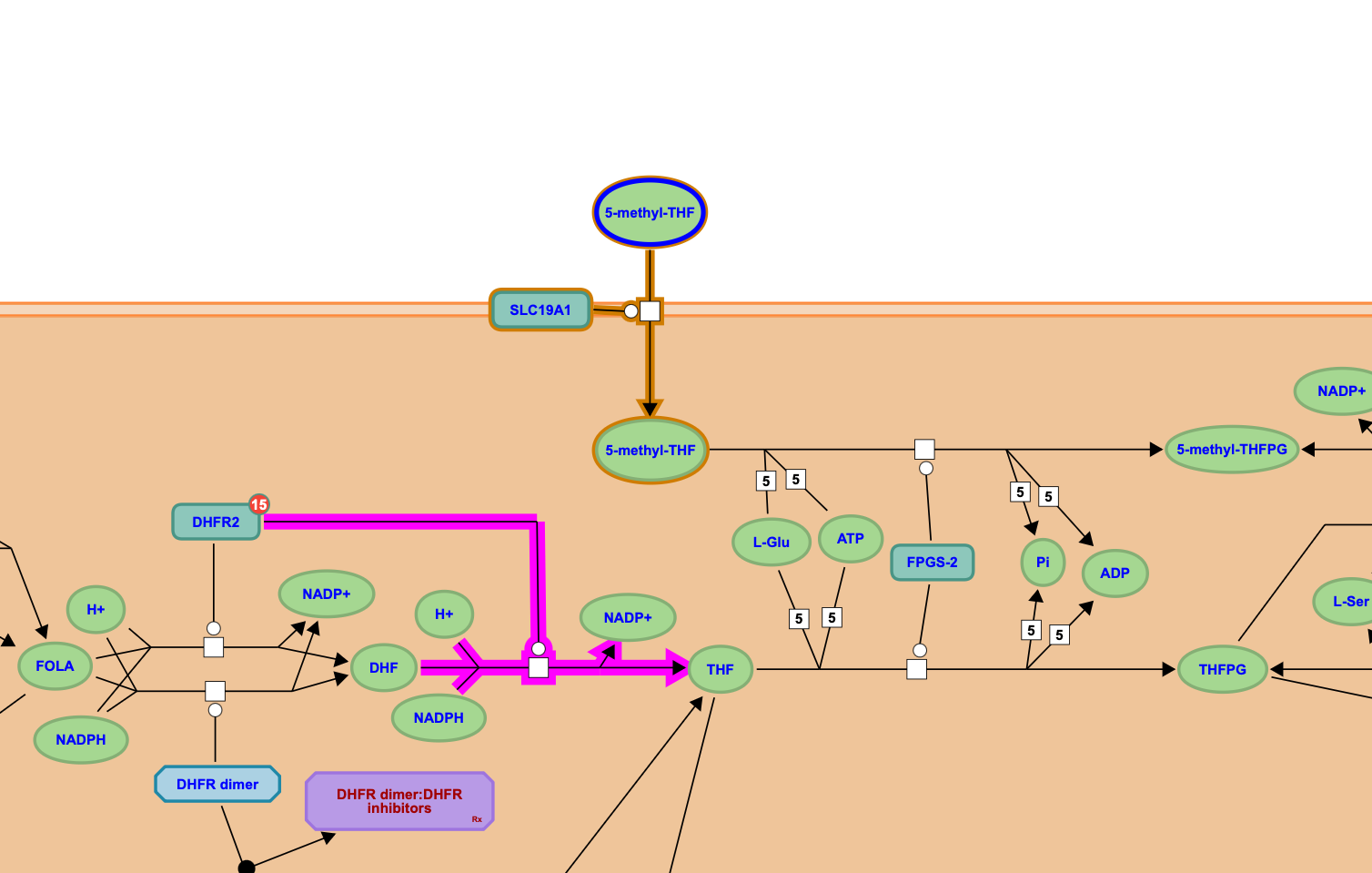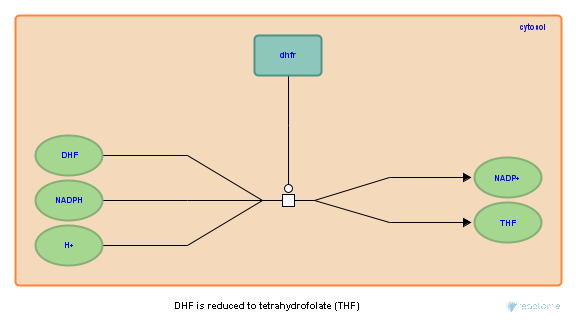I’d like to address a subject people ask about: MTHFR. I’ll provide an illustration about methylation for clarity, what problems result, explain what may be slowing down the changes that could resolve this issue, what helps and finally list some examples of what things to avoid.
I avoid synthetic vitamins, processed food additives, and anything with enriched flours.
But what exactly is MTHFR? It’s helpful to think of what it does in everyday terms, because it's a complicated subject as you can see from the diagrams below from Reactome.


Methylation = Can Opener
Imagine your body is like a pantry full of canned food, each can containing something essential for your health—like instructions for repairing cells or ingredients for brain chemicals. Methylation is like the can opener that allows you to access what's inside. You’ve got a whole team of workers utilizing these can openers, so you need as many as possible functioning—but if you only have a few and/or the can openers are damaged, it slows the whole team down—or worse, those cans stay sealed, and your body can't use the vital resources it needs. When methylation isn't working properly, it's like trying to live off a pantry full of food you can't open.When methylation works inefficiently, it can cause problems. This might lead to issues like fatigue, mood disorders, or even more serious health concerns.
As you can see, keeping this process running smoothly is key to staying healthy!
Technically speaking, reduced efficiency of methyl group transfer reactions, which are vital for many biological processes— DNA synthesis, repair and regulation, neurotransmitter and hormone metabolism, detoxification, immune function—since methylation depends on adequate levels of methylated folate (5-MTHF), B12 (methylcobalamin), and other cofactors like Sam-E, TMG (betaine), and of course methylated forms of B vitamins.
Intake of synthetic folic acid, above the metabolic capacity to activate it into 5-MTHF, can lead to circulation of unmetabolized folic acid (UMFA). Imagine an episode of “Hoarders: Buried Alive” but with canned foods everywhere, which has been linked to increased risk of cancer, insulin resistance and impaired immunity.
Synthetic cyanocobalamin must also be converted to methylcobalamin, so it is less effective for those with metabolic issues; but it’s not as much of a concern as folic acid. Why do companies make products that include this stuff? Some studies suggest that with sufficient B12, folic acid isn’t as much of an issue.
Make it Easier to Absorb
If possible, avoid flours enriched with folic acid (which is used to make the vast majority of baked goods), artificial sweeteners, emulsifiers, preservatives, glyphosate, carrageenan gum, and MSG.
Modern farming methods usually include the use of glyphosate pesticide, fertilizers like ammonia, and hybridized wheat. Modern wheat may not be GMO, but unlike ancient varieties of wheat, it’s bred to make removing the hull and germ easier. This strips away nutrients that they later decided to “add back” in the form of shelf-stable synthetics (remember Wonder Bread?). Does that mean no more baked bread? Not exactly.
Ancient grains include einkorn (that’s my favorite, very high in selenium), spelt, Kamut, and emmer. They are micronutrient-dense and include antioxidants like carotenoids. Even though I’m gluten-sensitive, I’ve experienced benefits from baking with ancient grains (and I’m not the only one). I also use a sourdough starter in bread making and avoid commercial yeast.
Realistically though, if people want the most benefit, taking methylated vitamins would be easier on the body. Using methylated vitamins are like getting cans with pull tabs so you can get the benefit faster!


